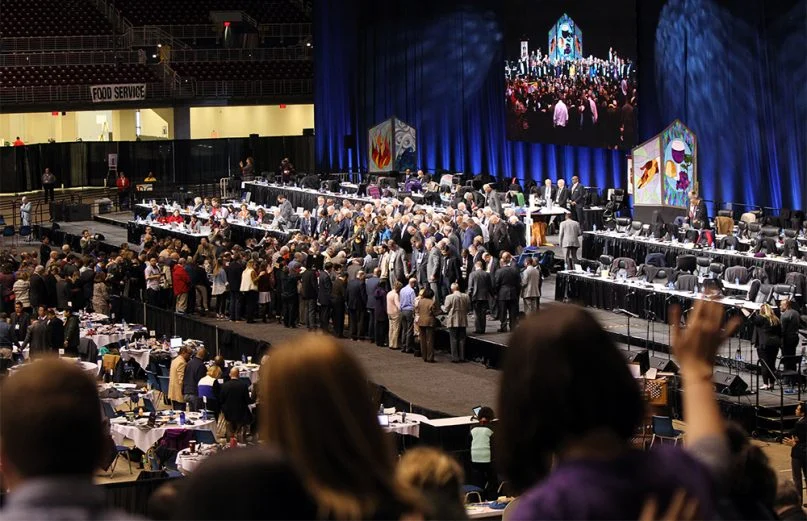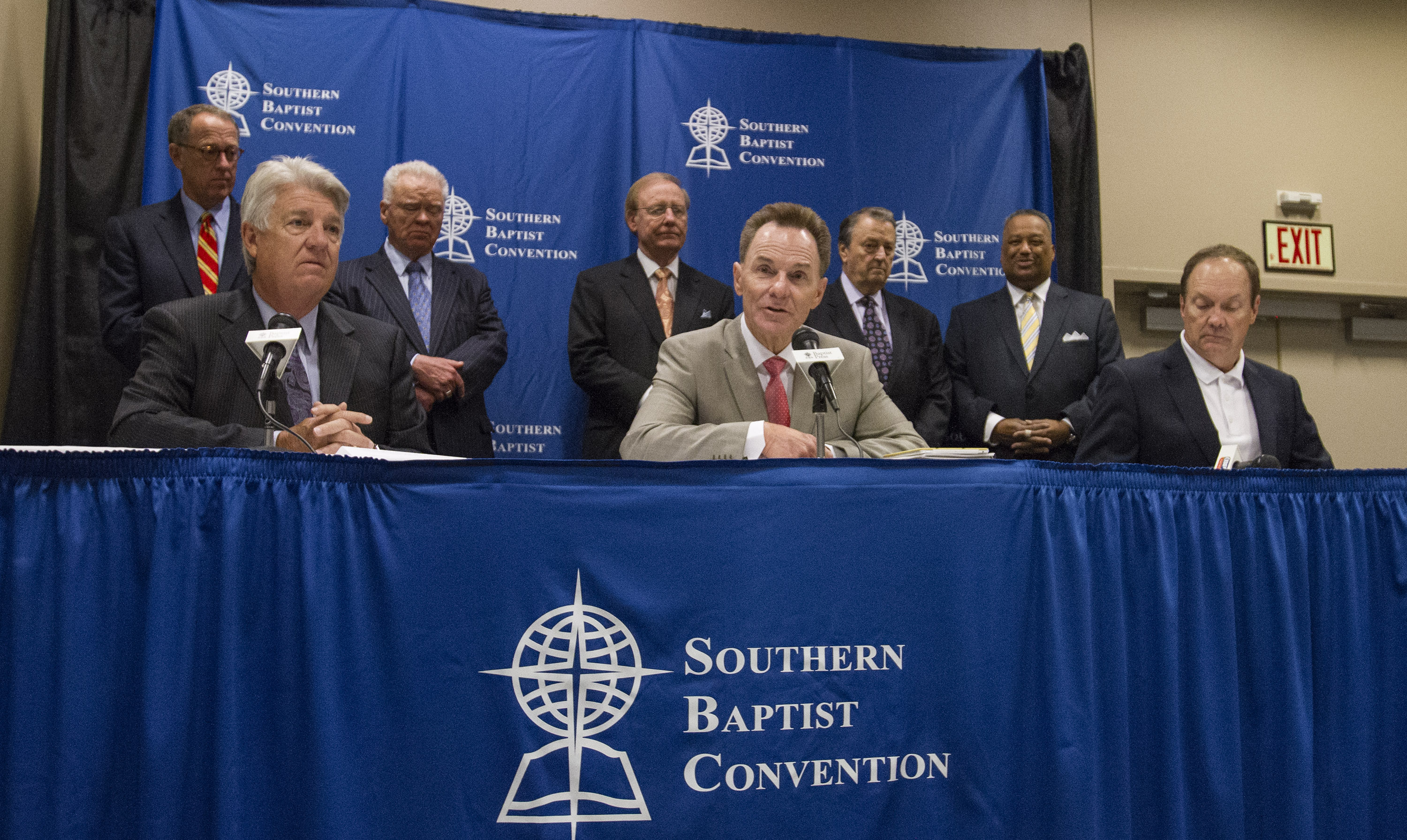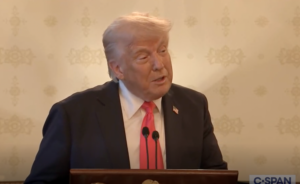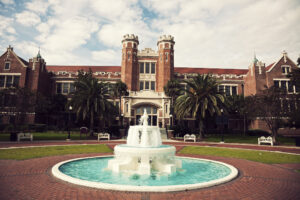
LAKELAND, Fla. (RNS) — More than 100 churches are suing the Florida Annual Conference of the United Methodist Church to immediately disaffiliate from the denomination.
The lawsuit comes amid a slow-moving schism in the United Methodist Church largely over the ordination and marriage of its LGBTQ members.
And, according to the head of a new, theologically conservative Methodist denomination that recently split from the United Methodist Church, it likely won’t be the last.
“Florida is the first of what I would anticipate might be a number of similar lawsuits occurring,” said Keith Boyette, transitional connectional coordinating officer of the conservative Global Methodist Church.
In the lawsuit — filed Thursday (July 14) in Bradford County, Florida, by the National Center for Life and Liberty — 106 churches allege the requirements for disaffiliation approved by a special session of the United Methodist Church’s General Conference are “onerous, and in many cases, prohibitive.”
That disaffiliation plan allows churches wishing to leave the denomination over its stance on sexuality to take their properties with them through 2023 after paying apportionments and pension liabilities. It was added to the Book of Discipline by General Conference delegates in 2019 alongside legislation called the Traditional Plan that strengthened the denomination’s language barring the ordination and marriage of LGBTQ United Methodists.
The annual conference is using the disaffiliation plan and the denomination’s trust clause to “hold for ransom Plaintiff Churches’ real and personal property,” according to the suit, when previously existing provisions in the Book of Discipline allow churches to simply deed their properties to other evangelical denominations.
Meanwhile, the lawsuit alleges the Council of Bishops and its past president — Bishop Ken Carter, who heads both the Florida and Western North Carolina conferences — are not abiding by the same Book of Discipline. Among other things, it said they did nothing as the California-Nevada Annual Conference elected the denomination’s first openly LGBTQ bishop, the Illinois Great Rivers Conference certified its first drag queen as a candidate for ministry and the Western Jurisdiction declared itself a “safe harbor” for LGBTQ clergy.
In a written statement in response to the lawsuit, Carter said the Florida Annual Conference was “deeply grieved by this, as we seek to be a church united in love and in mission.”
The Florida Annual Conference is committed to the “gracious exit” provided in the Book of Discipline and has tried to engage churches in that process, according to its bishop’s statement.
Leaving abruptly without making the payments required by the disaffiliation plan approved in 2019 could damage benefits and pensions for retired pastors, he wrote. Apportionments support camps, campus ministries, natural disaster responses, missions abroad and the United Methodist Children’s Home.
“We ask that, despite their haste, these groups seeking to break away live up to the responsibilities established by the General Conference in 2019, and that they not cause pain, damage or disparage other United Methodist churches, other members in their churches or other pastors, or the Conference,” Carter wrote.
Florida has emerged as an early indicator of what schism may look like as it begins to unfold across the United Methodist Church.
Days after the Global Methodist Church launched in May, the Wesleyan Covenant Association’s Florida chapter announced 107 churches were disaffiliating from the United Methodist Church and planning to join the new denomination. The WCA confirmed most of those churches are participating in the new lawsuit.
At the Florida Annual Conference meeting this summer, delegates reportedly rejected a slate of 16 people on track to become ordained elders or deacons because two of them were openly gay.
They also approved 14 disaffiliations.
Boyette, head of the Global Methodist Church, said he expects those numbers to increase this fall when a number of United Methodist annual conferences are scheduled to hold special sessions regarding disaffiliations.
“Most of those churches are making their way to the Global Methodist Church,” he said.
That includes “virtually all” of the churches named in the lawsuit against the Florida Annual Conference, according to Boyette, who said he is not involved in the lawsuit.
The Global Methodist Church launched this year after a third postponement of the United Methodist Church’s 2020 General Conference, which was set to consider a proposal to split the denomination, allowing churches to disaffiliate with their properties to form new conservative expressions of Methodism. It now has several hundred clergy and nearly 100 churches worldwide, Boyette said.
In recent weeks, moderate and progressive leaders who helped negotiate the proposal, called the Protocol of Reconciliation & Grace Through Separation, have rescinded their support. Bishops who were part of the negotiating team, including Carter, released a statement affirming the work that had been done on the proposal and trusting it to delegates who may still consider it at the next General Conference, now scheduled for 2024.
Meanwhile, Boyette said, some annual conferences are requiring lengthy discernment periods and additional financial obligations that weren’t outlined in the 2019 disaffiliation plan from churches wishing to leave.
“All of that has taken a situation that could have been and was directed in an amicable way toward resolution to make it a very contentious, conflicted situation,” he said.
“So, in my mind, it’s not surprising that churches feel like they have no recourse but to resort to litigation at this point, and that’s what essentially I believe that leadership in the United Methodist Church has invited by taking the steps that they’ve taken,” Boyette added.




















